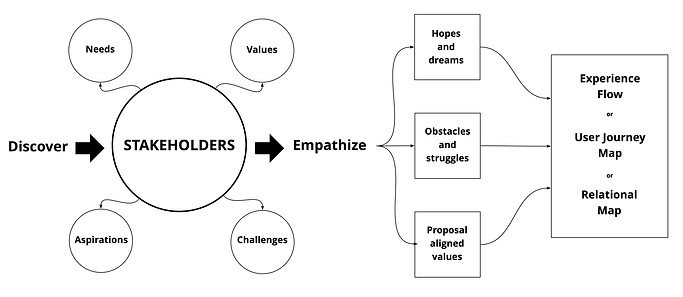
Phase 1
Overview
Barcelona’s waste system lacks a solution for electrical and metal waste, which cannot go in the six color-coded bins. Citizens often leave these items beside bins instead of using green points due to limited access and convenience. This leads to informal collectors retrieving and selling the waste, creating environmental and social challenges.
Objectives
-
Make electrical and metal waste disposal easier.
-
Improve access to collection points.
-
Reduce informal waste picking.
-
Simplify municipal waste collection.
-
Promote proper disposal habits.
Methodologies
-
Expert Interview
-
Ecosystem Diagram
-
Experience Flow
-
In-depth Interviews
-
Service Blueprint
-
Business Model Canvas

Problem Statement
The role of informal waste pickers is not refuseable since they are profitable and useful for both government and society. Based on observations in Barcelona the local government does not have capability, capacity and intention to stop or force them to quit their jobs as they are only some fines against them.
The poor working conditions of informal garbage collectors in Barcelona directly affect the level of efficiency of the waste collection system, and keep them in a vulnerable situation.
"How might we" help informal waste pickers to make this system more efficient with reducing pollution (for both pickers and society), changing society and government visions as well as preparing a safe and healthy work condition for them?"
System Diagram
After the primary research and observation phase, we organized the findings into a system diagram to illustrate the circular economy within the current waste management scenario.

Phase 2
Empathize & Discover




Journey Mapping
Stakeholders Mapping
During the empathy and discovery phase, extensive research, observations of informal waste collectors, and expert interviews revealed the connections between informal pickers, Barcelona warehouses, and the waste management system. We then created journey maps and stakeholder mappings to clarify the ecosystem
And
Warehouses
Citizens
As a result of the stakeholder and journey mapping some important stakeholders were selected in relation with the waste collection as follow to understand the stakeholders better:
Experience Flow
Building on primary research, we:
-
Research & Observation
-
Used an ethnographic field guide to study informal pickers and cultural barriers.
-
Conducted expert interviews to identify system gaps.
-
-
Data Structuring
-
Visualized the circular economy and cultural challenges in a system diagram.
-
-
Ecosystem Mapping
-
Mapped stakeholders and relationships within the waste management system.
-
Created journey maps to highlight behaviors, pain points, and gaps.
-

Experience Flow Chart

-
The experience flow chart outlines the waste generation and disposal process.
-
It connects stakeholders with insights from research, interviews, and observations.
-
It highlights the significant relationship between citizens and informal waste pickers.
Phase 3
Frame & Define
This step, "Frame and Define," involves synthesizing insights from the discovery phase and evaluating progress against the initial proposal. It is a critical stage that helps uncover pain points, new solutions, and opportunities, providing a solid foundation for the next phase of idea generation.
Key points of this step:
-
Synthesize insights from research, observations, and interviews.
-
Gather and organize stakeholder information into distinct themes.
-
Assess progress against the initial proposal.
-
Uncover key challenges and improvement opportunities.
-
Ensure alignment with user needs and system requirements before moving on to idea generation.

Phase 4
Ideation & Development
Mockup - MVP

Idea Mapping
System Architecture

Idea Selection


Ideation

Our approach to the GOAL:
Following the ideation and development phases, we created an application that allows informal waste pickers to register safely. The app facilitates warehouses in receiving the materials (waste) collected by pickers, benefiting the city of Barcelona and its citizens by optimizing waste management and promoting responsible recycling practices.
~2.000
Informal waste pickers in Barcelona
~300
Warehouses in Barcelona
~2.500
Trash bin spots in Barcelona
Power in Numbers



Software used in this project:
Lessons Learnt
-
Cultural barriers like accessibility and fairness impact waste disposal behaviors.
-
Engaging stakeholders revealed key challenges and opportunities.
-
System diagrams and journey maps clarified relationships and gaps.
-
Framing insights ensured focused, practical solutions.
-
A user-centered approach fostered trust and usability.
Steps Taken
-
Conducted research to identify challenges and stakeholder relationships.
-
Synthesized findings into system diagrams and themes.
-
Ideated and developed a user-focused application for informal waste pickers.
-
Designed the solution to connect stakeholders and promote responsible recycling.

